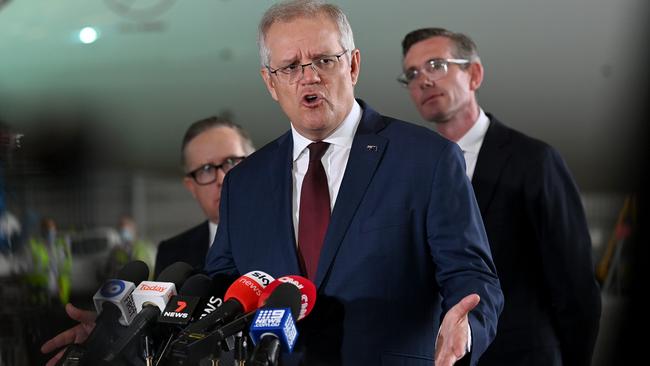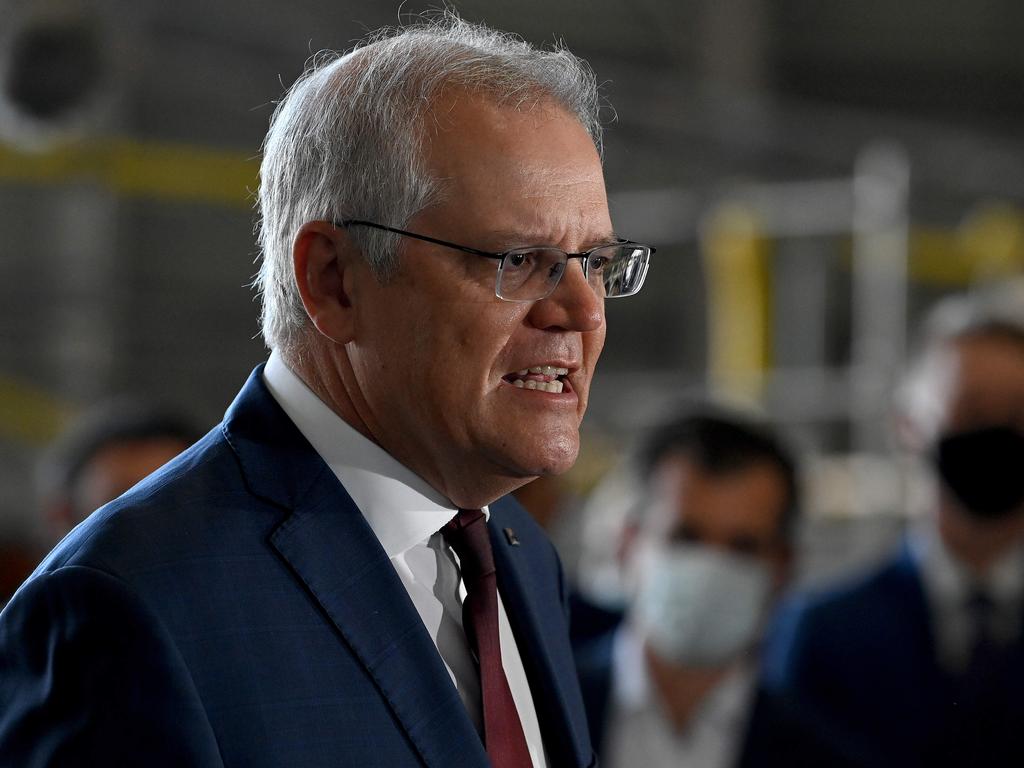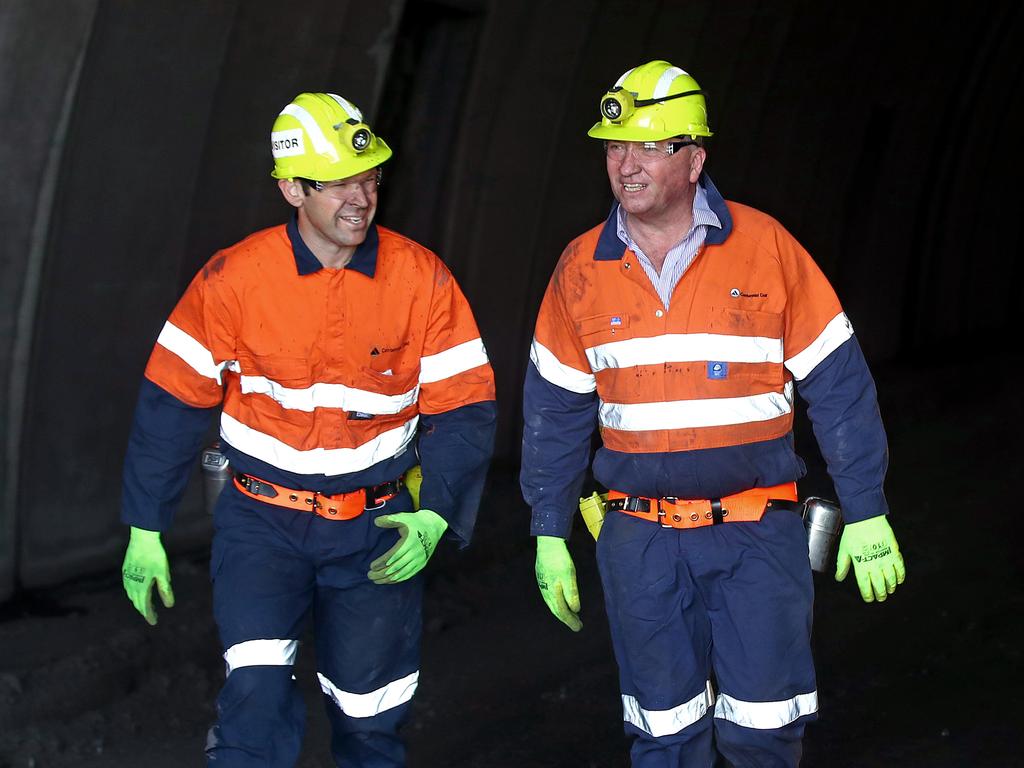
The Prime Minister is paying the short-term electoral price for ensuring that doesn’t happen.
On Sunday night he struck a historic accord with the Nationals to deliver an outcome that has eluded the Coalition for more than a decade. But voters punish disunity, and the junior Coalition partner’s dithering of the past two weeks has delivered an unsurprising poll blow to the government in the meantime.
This will unsettle conservative MPs already twitchy about the direction Morrison is taking them on this issue. It will ignite a debate over interpretation.
There are those who will read it as a vindication of their defiance against adopting any target at all.
The more sensible will realise nothing hurts a government more electorally than the optics of internal division.
For Morrison there was always going to be a short-term transactional cost for ensuring the government was not still fighting the climate wars leading into next year’s election.
The shift in community attitudes over the past three years is now evident – it is no longer an ideological war at the margins. Of this, Morrison is convinced.
This shift may be a reflection of two simple truths. The country has enjoyed a period of relative stability in electricity prices for the past two years, allowing the moral and economic imperative of emissions reduction to assume precedence. Voters are also demanding governments resolve the issue once and for all.
Having sought to address this, however, Morrison now faces a significant political challenge when he returns from Glasgow.
He will need to take command of the agenda, steer the debate away from climate change and start framing the government’s re-election narrative.
As bad as the polls may seem, however, Morrison finds himself in an almost identical position to where he was prior to the 2019 election. The Coalition was on the same primary vote of 35 per cent six months out.
Morrison’s approval ratings were also virtually identical.
Three months into the job, he was on a net negative approval of minus three. He is now on a net negative of minus four.
The difference now to then is Labor was in an arguably stronger position in December 2018 than it is now. Labor’s primary vote at the same point in 2018 was 41 per cent compared with 38 per cent now.
While Bill Shorten was unpopular, on a net negative satisfaction level of minus 15, Anthony Albanese is only marginally more appealing with a net negative approval rating of minus nine.
Morrison also has a greater advantage over Albanese as preferred prime minister – 48 per cent to 34 per cent – than he did over Shorten – 44 per cent to 36 per cent.
Given this, it is little wonder Albanese is also seeking to neutralise a debate over emissions targets, considering Labor lost from a more dominant position in the polls at this point in the cycle last time around.







Scott Morrison believes the Coalition cannot afford for the next election to become a referendum on a 2050 net-zero emissions target.